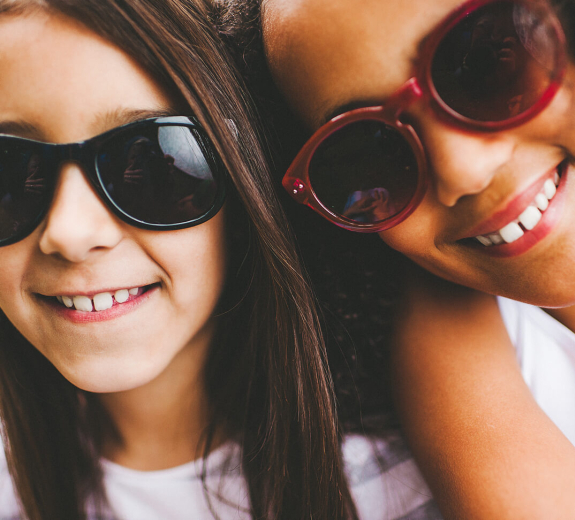
Fighting Back Against Juvenile Rheumatoid Arthritis
To many, rheumatoid arthritis (RA) may seem like an older person’s worry. And it’s true that many people who live with RA develop it later in life. But not all.
Every year, doctors diagnose nearly 300,000 children with juvenile rheumatoid arthritis (JRA) – RA’s “younger sibling.” The symptoms are similar to those experienced by adults, including joint pain and discomfort, fatigue and sore muscles.
JRA is an autoimmune disease, so pain and other symptoms result from the body mistakenly attacking its own tissues. In this case, it leads to a build-up of fluid in the joints and potential effects on other organs and systems in the body.
For parents, it can be very disheartening to watch your child struggle with JRA when they should be playing, exploring and using their growing bodies to their fullest. It can also make your family feel different and isolated from others around you.
But rest assured, many others are facing similar challenges. And while JRA does create some hurdles, it doesn’t stop kids from having active, happy childhoods. Research into RA has led to treatments that help patients live larger than their disease. And today we’re on the path not only to finding a cure but also to predicting, preventing and reversing this disease.
If She Can Do It …
If you have or know a child who worries that having JRA means no more sports or fun, tell them Caroline Wozniacki disagrees.
Wozniacki is a pro tennis player — in fact, she was the number one player in the world at different times in her career. But in the summer of 2018, she experienced pain and fatigue that kept her from competing. Eventually she learned it was because of RA.
To win most tennis tournaments, players have to win a match every day for a week. Wozniacki wasn’t sure her body would be up for it.
“Will I ever be able to play six matches in a row?” she says she asked herself.
A few weeks later, at the China Open, she answered her own question. Six matches, six wins, and one big trophy to prove it. RA isn’t holding her back.
Some days are harder than others, she says. Children with JRA can expect similar ups and downs. But overall, exercise and activity are more than possible with JRA. In fact, according to The Rheumatoid Arthritis Support Network, they’re among the best ways for children to stay on top of their disease.
Building a Community
Role models like Wozniacki are wonderful for inspiring children to persevere. But parents may also want support closer to home. The Arthritis Foundation, a nationwide nonprofit that provides resources to the RA patient community, is an ideal place to start.
The foundation facilitates the JA Parent Support Network, in which parents of kids with JRA lead support groups for other local parents, helping each other navigate challenges together.
The foundation also provides programs specifically for kids with JRA, including camps and a Kids’ Summit, where children learn to use their voices and raise awareness of JRA by joining the foundation’s advocacy efforts on Capitol Hill.
RA Research at BRI
Benaroya Research Institute at Virginia Mason (BRI) is focused on eliminating all autoimmune diseases, since they share a common cause of the immune system attacking itself.
Our research into RA began in 1986 when we discovered the genes contributing to this disease, and we won’t stop until we discover how to cure and prevent it. In collaboration with colleagues from Rush University and the National Institutes of Health, we recently clarified the autoimmune response at the heart of this disease.
“Our research demonstrates that the immune cells target the extracellular matrix in the joint — a network of molecules that exist outside the cells of the joint,” BRI Principal Investigator Eddie James, PhD, says. “We are now working to develop and implement therapeutic strategies that reprogram those immune responses so they don’t treat the extracellular matrix like an enemy.”
One reason Dr. James and other researchers are making progress is that they have help from people like you. Whether you have an autoimmune disease or not, you can help advance research by joining BRI’s biorepositories.
A biorepository is a collection of biological samples and health information of volunteers with and without disease. Since people of all ages live with these diseases, we want samples from people of all ages. Researchers use these samples to learn what defines a healthy immune system to understand how diseases of the immune system occur.
Sign up to donate a sample here. A research assistant will contact you to schedule a 30- to 45-minute appointment, where you will provide some information and a blood sample.
From professional athletes to precocious teenagers, people are proving that they’re stronger than RA. At BRI and other institutions, researchers are bringing the fight to the disease itself.
With your help, that’s a fight we know we can win.
Immuno-what? Hear the latest from BRI
Keep up to date on our latest research, new clinical trials and exciting publications.


